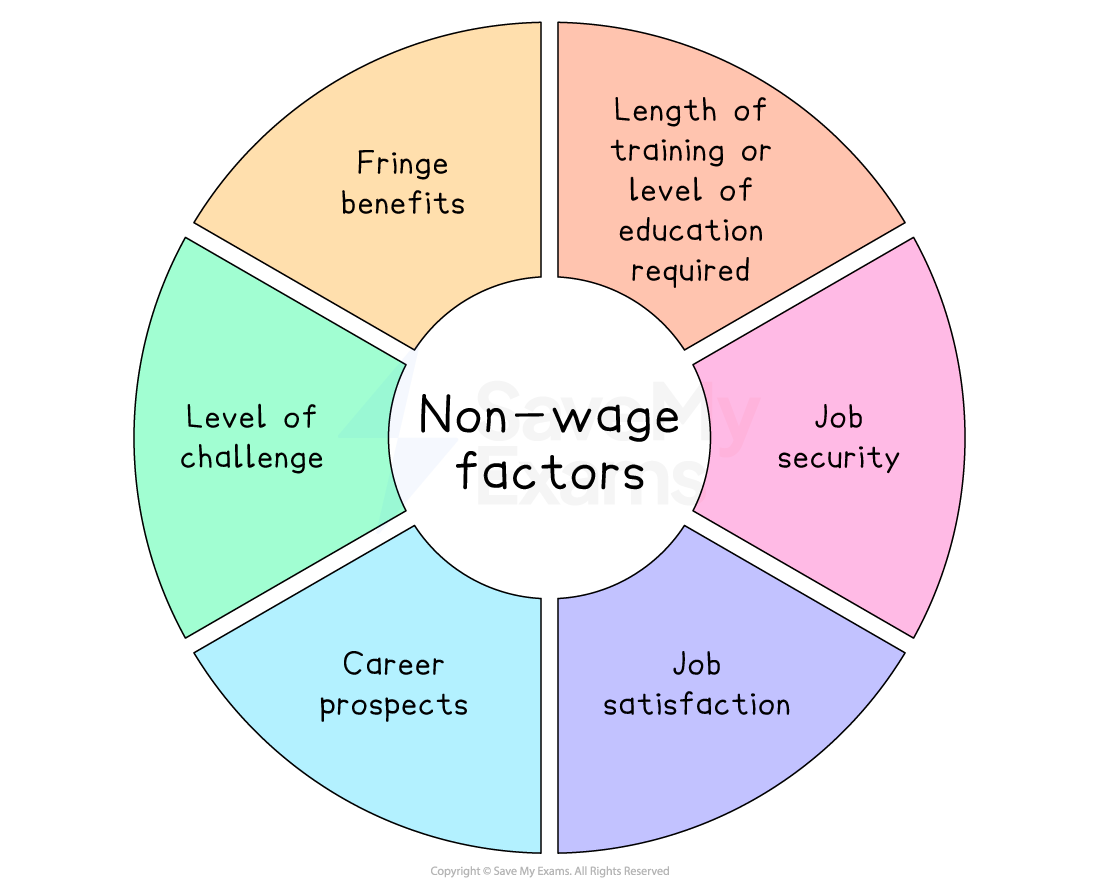Syllabus Edition
First teaching 2025
First exams 2027
Factors Affecting the Choice of Occupation (Cambridge (CIE) IGCSE Economics): Revision Note
Exam code: 0455 & 0987
Wage factors
The occupational choices of workers are influenced by a range of wage and non-wage factors, which are often held in balance when making decisions about where to work
Wage factors are financial payments that workers receive for their labour
Non-wage factors incorporate a range of influences that are meaningful to a worker
Wage factors that influence occupational choices
Factor | Explanation |
|---|---|
Wages |
|
Salary |
|
Commission |
|
Bonus |
|
Piece rate pay |
|
Performance-related pay (PRP) |
|
Share options |
|
Non-wage factors
Many different non-wage factors influence a worker's choice of occupation

Fringe benefits
Benefits provided in addition to a normal salary, such as:
Childcare
Free lunches
Gym membership
Company car
These can be a significant influence on a person’s choice of occupation
Length of training or level of education required
Longer training or study requirements may discourage people from entering the occupation
Fewer workers are willing to invest the time and cost needed for lengthy qualifications.
For example, becoming a lawyer usually takes seven years of study and training
Job security
Stability of employment can be an important deciding factor
Some industries offer permanent contracts; others have short‑term contracts (e.g. 1–4 years)
Workers may avoid jobs in industries with high redundancy risk
Job satisfaction (enjoyment of work)
Enjoying work is a major contributor to overall job satisfaction
Workers often change jobs or careers to improve enjoyment and fulfilment
Career prospects
Occupations with clear pathways for promotion and skill development are more attractive
Opportunities for salary increases and advancement encourage workers to stay in or choose certain careers
Level of challenge
Some workers choose roles for the challenge and variety they offer
For example, firefighters often value the physical and mental challenges of their work
Status
Certain jobs carry high social recognition, which can be appealing.
For example, doctors, surgeons, and lawyers are often seen as prestigious professions

Unlock more, it's free!
Was this revision note helpful?
